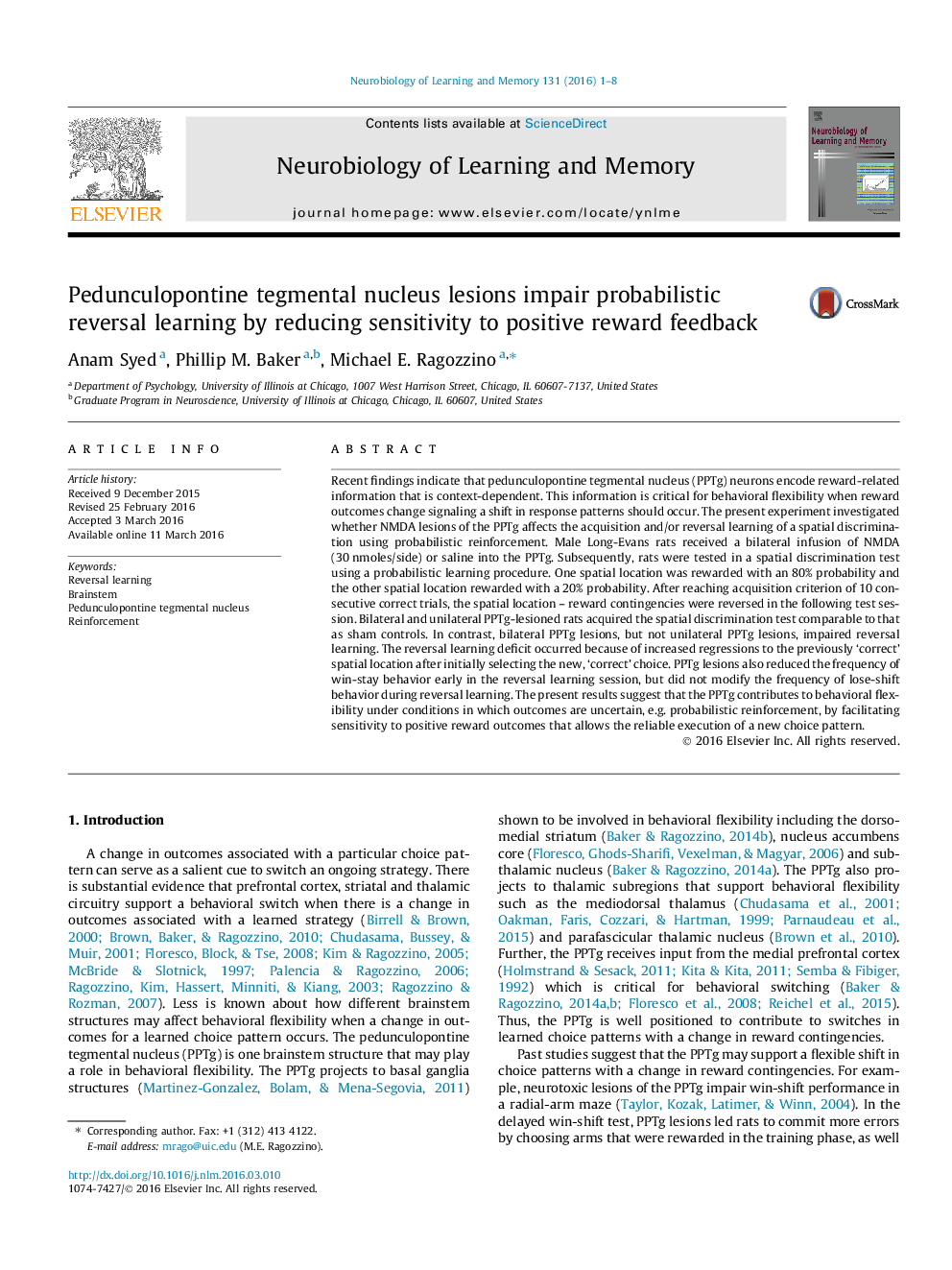| کد مقاله | کد نشریه | سال انتشار | مقاله انگلیسی | نسخه تمام متن |
|---|---|---|---|---|
| 7299104 | 1475144 | 2016 | 8 صفحه PDF | دانلود رایگان |
عنوان انگلیسی مقاله ISI
Pedunculopontine tegmental nucleus lesions impair probabilistic reversal learning by reducing sensitivity to positive reward feedback
دانلود مقاله + سفارش ترجمه
دانلود مقاله ISI انگلیسی
رایگان برای ایرانیان
کلمات کلیدی
موضوعات مرتبط
علوم زیستی و بیوفناوری
علم عصب شناسی
علوم اعصاب رفتاری
پیش نمایش صفحه اول مقاله

چکیده انگلیسی
Recent findings indicate that pedunculopontine tegmental nucleus (PPTg) neurons encode reward-related information that is context-dependent. This information is critical for behavioral flexibility when reward outcomes change signaling a shift in response patterns should occur. The present experiment investigated whether NMDA lesions of the PPTg affects the acquisition and/or reversal learning of a spatial discrimination using probabilistic reinforcement. Male Long-Evans rats received a bilateral infusion of NMDA (30Â nmoles/side) or saline into the PPTg. Subsequently, rats were tested in a spatial discrimination test using a probabilistic learning procedure. One spatial location was rewarded with an 80% probability and the other spatial location rewarded with a 20% probability. After reaching acquisition criterion of 10 consecutive correct trials, the spatial location - reward contingencies were reversed in the following test session. Bilateral and unilateral PPTg-lesioned rats acquired the spatial discrimination test comparable to that as sham controls. In contrast, bilateral PPTg lesions, but not unilateral PPTg lesions, impaired reversal learning. The reversal learning deficit occurred because of increased regressions to the previously 'correct' spatial location after initially selecting the new, 'correct' choice. PPTg lesions also reduced the frequency of win-stay behavior early in the reversal learning session, but did not modify the frequency of lose-shift behavior during reversal learning. The present results suggest that the PPTg contributes to behavioral flexibility under conditions in which outcomes are uncertain, e.g. probabilistic reinforcement, by facilitating sensitivity to positive reward outcomes that allows the reliable execution of a new choice pattern.
ناشر
Database: Elsevier - ScienceDirect (ساینس دایرکت)
Journal: Neurobiology of Learning and Memory - Volume 131, May 2016, Pages 1-8
Journal: Neurobiology of Learning and Memory - Volume 131, May 2016, Pages 1-8
نویسندگان
Anam Syed, Phillip M. Baker, Michael E. Ragozzino,